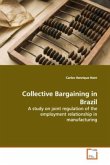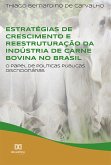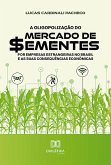
8,99 €
inkl. MwSt. und vom Verlag festgesetzt.
Sofort per Download lieferbar

Broschiertes Buch
A study on joint regulation of the employment relationship in manufacturing
2009
VDM Verlag Dr. Müller
Ähnliche Artikel

7,99 €
inkl. MwSt. und vom Verlag festgesetzt.
Sofort per Download lieferbar
eBook, ePUB
2. Mai 2023
Editora Dialética

4,99 €
inkl. MwSt. und vom Verlag festgesetzt.
Sofort per Download lieferbar
eBook, ePUB
29. Dezember 2024
Editora Appris

7,49 €
inkl. MwSt. und vom Verlag festgesetzt.
Sofort per Download lieferbar
eBook, ePUB
19. Mai 2022
Editora Dialética

11,99 €
inkl. MwSt. und vom Verlag festgesetzt.
Sofort per Download lieferbar
eBook, ePUB
12. Juli 2022
Editora Dialética

8,99 €
inkl. MwSt. und vom Verlag festgesetzt.
Sofort per Download lieferbar
eBook, ePUB
23. November 2021
Editora Dialética

9,49 €
inkl. MwSt. und vom Verlag festgesetzt.
Sofort per Download lieferbar
eBook, ePUB
28. Juni 2024
Editora Dialética

8,99 €
inkl. MwSt. und vom Verlag festgesetzt.
Sofort per Download lieferbar

9,49 €
inkl. MwSt. und vom Verlag festgesetzt.
Sofort per Download lieferbar
eBook, ePUB
26. November 2024
Editora Dialética

9,49 €
inkl. MwSt. und vom Verlag festgesetzt.
Sofort per Download lieferbar
eBook, ePUB
4. Juli 2024
Editora Dialética

6,99 €
inkl. MwSt. und vom Verlag festgesetzt.
Sofort per Download lieferbar
Ähnlichkeitssuche: Fact®Finder von OMIKRON
